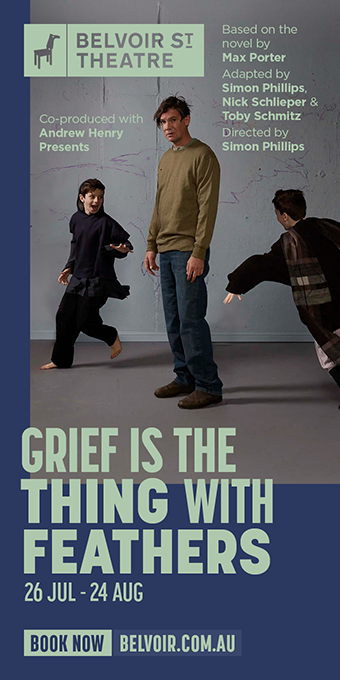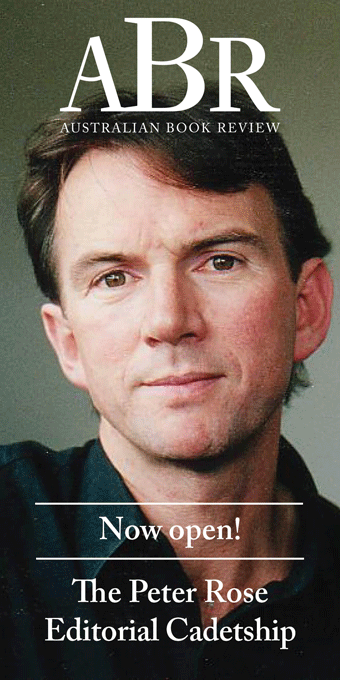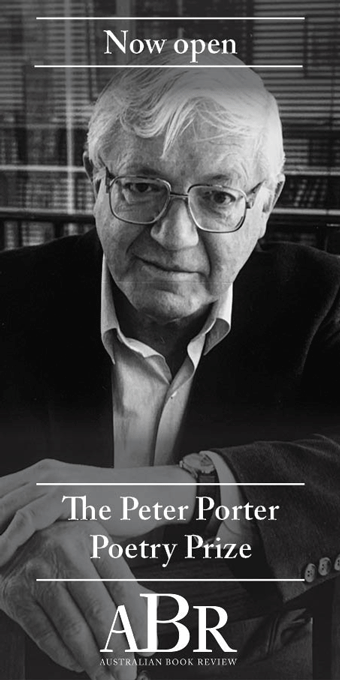Arts
Film | Theatre | Art | Opera | Music | Television | Festivals
Welcome to ABR Arts, home to some of Australia's best arts journalism. We review film, theatre, opera, music, television, art exhibitions – and more. To read ABR Arts articles in full, subscribe to ABR or take out an ABR Arts subscription. Both packages give full access to our arts reviews the moment they are published online and to our extensive arts archive.
Meanwhile, the ABR Arts e-newsletter, published every second Tuesday, will keep you up-to-date as to our recent arts reviews.
Recent reviews
Tom Nicholson's 'Cartoons for Joseph Selleny' (Art Gallery of New South Wales)
Tom Nicholson is a Melbourne artist whose work explores the past in multiple ways, through image and textual narrative. The scale of his art is big. Last year the Art Gallery of New South Wales dedicated an entire gallery to his Cartoons for Joseph Selleny, a work commemorating the Viennese landscape painter and lithogr ...
In the argument over the programming of Broadway musicals by Australia’s opera companies, it is usually assumed that audiences know the difference between the two forms. But even superficial markers can be misleading. Bizet’s Carmen (1875) uses dialogue and song forms that are traditionally associated with the musical, but is classified as an
... (read more)‘In my Eden a person who dislikes Bellini has the good manners not to get born,’ wrote W.H. Auden in his poem ‘Vespers’ (1954). Like much of Auden’s table-talk, this may seem rather extreme, but those who attended last Thursday’s concert version of Vincenzo Bellini’s I Puritani may have gone away with similarly exclusive thoughts.
Though ...
Writing to a friend in 1898, Giuseppe Verdi said of Rossini’s The Barber of Seville:
You may say things about Rossini and they may be true regarding the borrowings, the speed of composition and so forth, but I confess that I cannot help believing ‘The Barber of Seville’ for abundance of ideas, for verve and for truth of dec ...
A music teacher in Thomas Mann’s early novel, Buddenbrooks (1900), when presented with some piano arrangements of Tristan und Isolde, recoils in terror: ‘I won’t play this ... This is not music ... It is pure chaos! It is demagoguery, blasphemy, and madness! It is the end of all morality in the arts. I will not pl ...
Texas-based songwriter Bill Callahan recorded for fifteen years under the name Smog but, since releasing his first album under his own name in 2007, he has gradually shed the murkier indie-rock connotations of Smog and broadened into an acclaimed bard of minimalist Am ...
Our European summer holiday began in Munich – surprisingly cold and drizzly – perfect weather for long sessions in the Alte Pinakothek. This is one of the more forbidding of the great galleries, with its battered façade showing all the evidence of extensive bombing during World War II and a utilitarian rebuilding by Hans Döllg ...
In a hit-driven commercial climate, creating film franchises makes economic sense. Consumers who enjoyed the first The Best Exotic Marigold Hotel are likely to purchase a ticket to the sequel. Those who have committed more than eleven hours’ viewing to the first six films in The Fast and the Furious series will probab ...
Opera Australia’s autumn season in Melbourne with two revivals – one very familiar; the other in its second season, and its first on the bigger Melbourne stage. Each, responsibly, is on a Monday, not always guaranteed to draw a large audience, but the capacious State Theatre was well attended for the first offering, Madama Butterfly.
Moffa ...
Many good books are published about Australian art, but few change the way we see and understand it. When Andrew Sayers’ Aboriginal Artists of the Nineteenth Century appeared in August 1994, it immediately did that, as the critic Bruce James was quick to recognise





